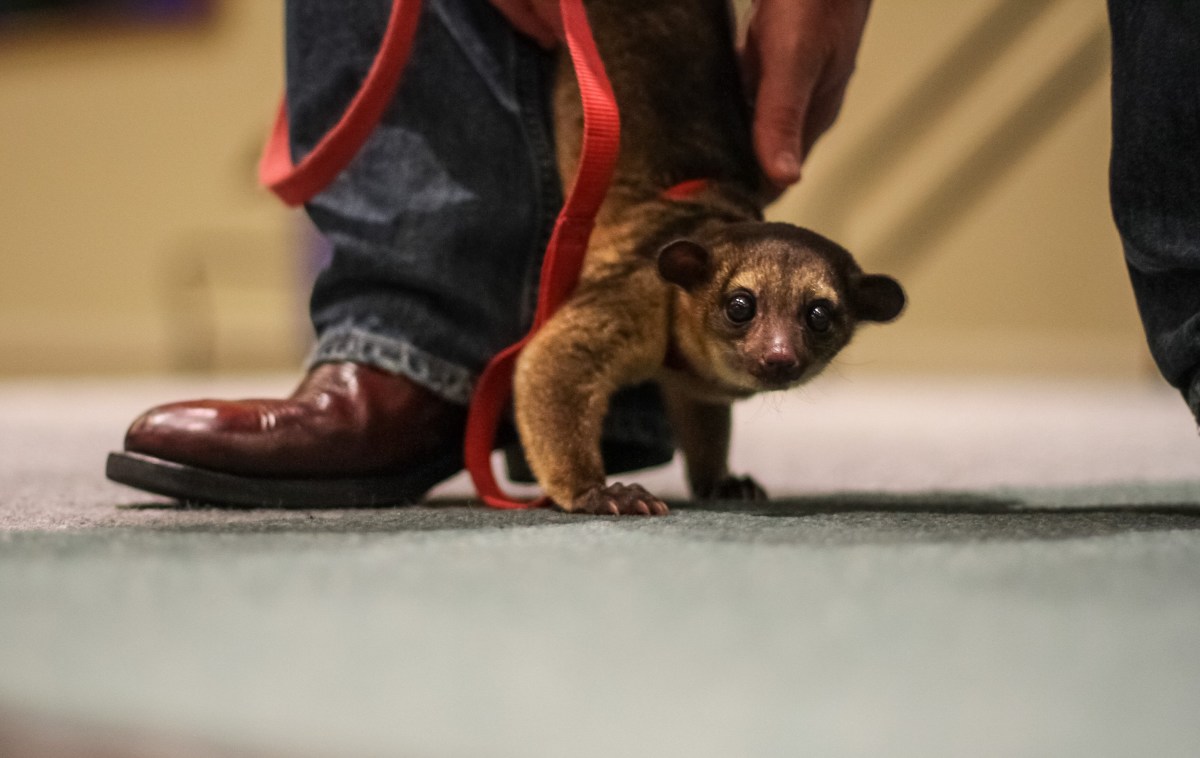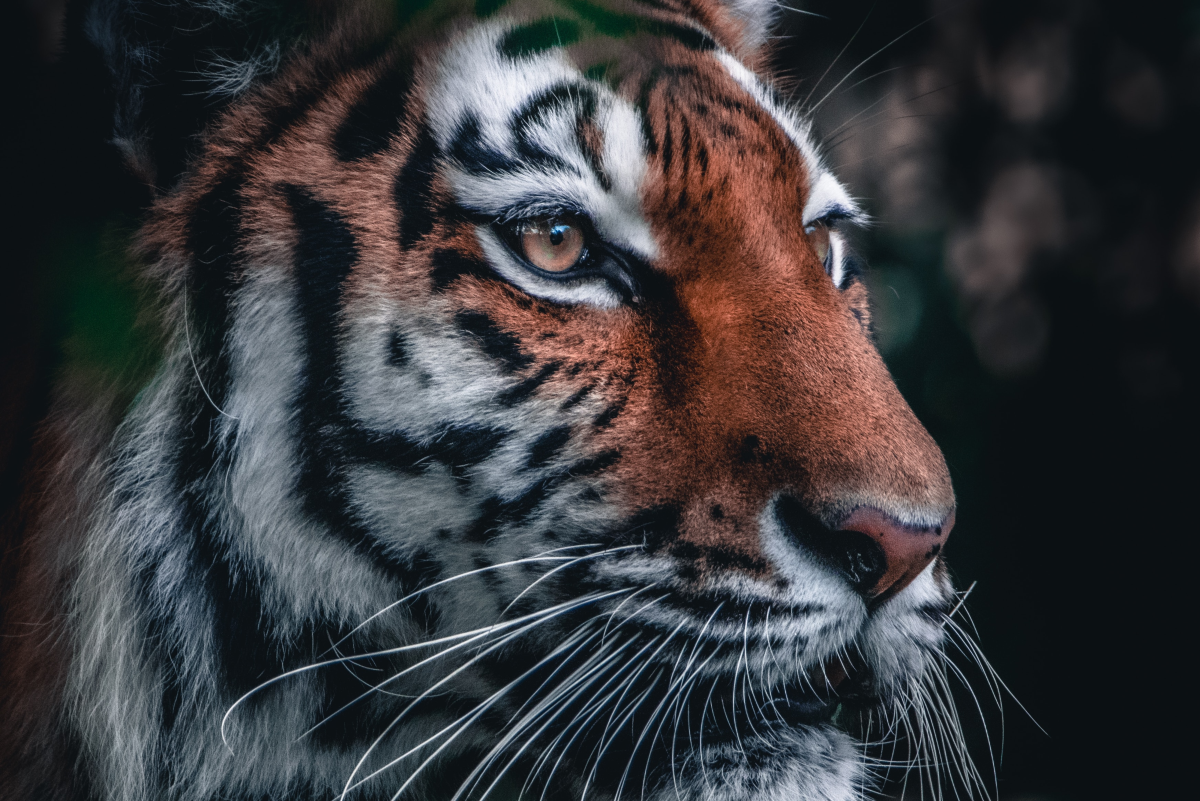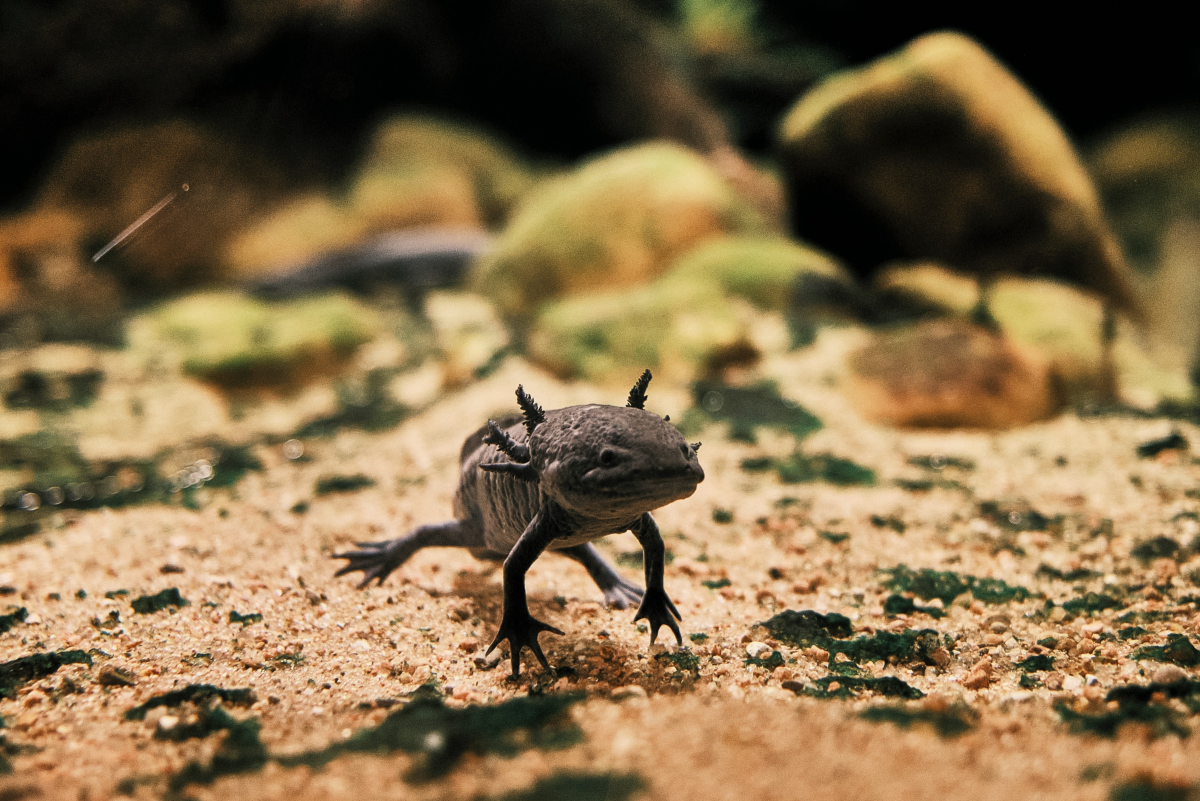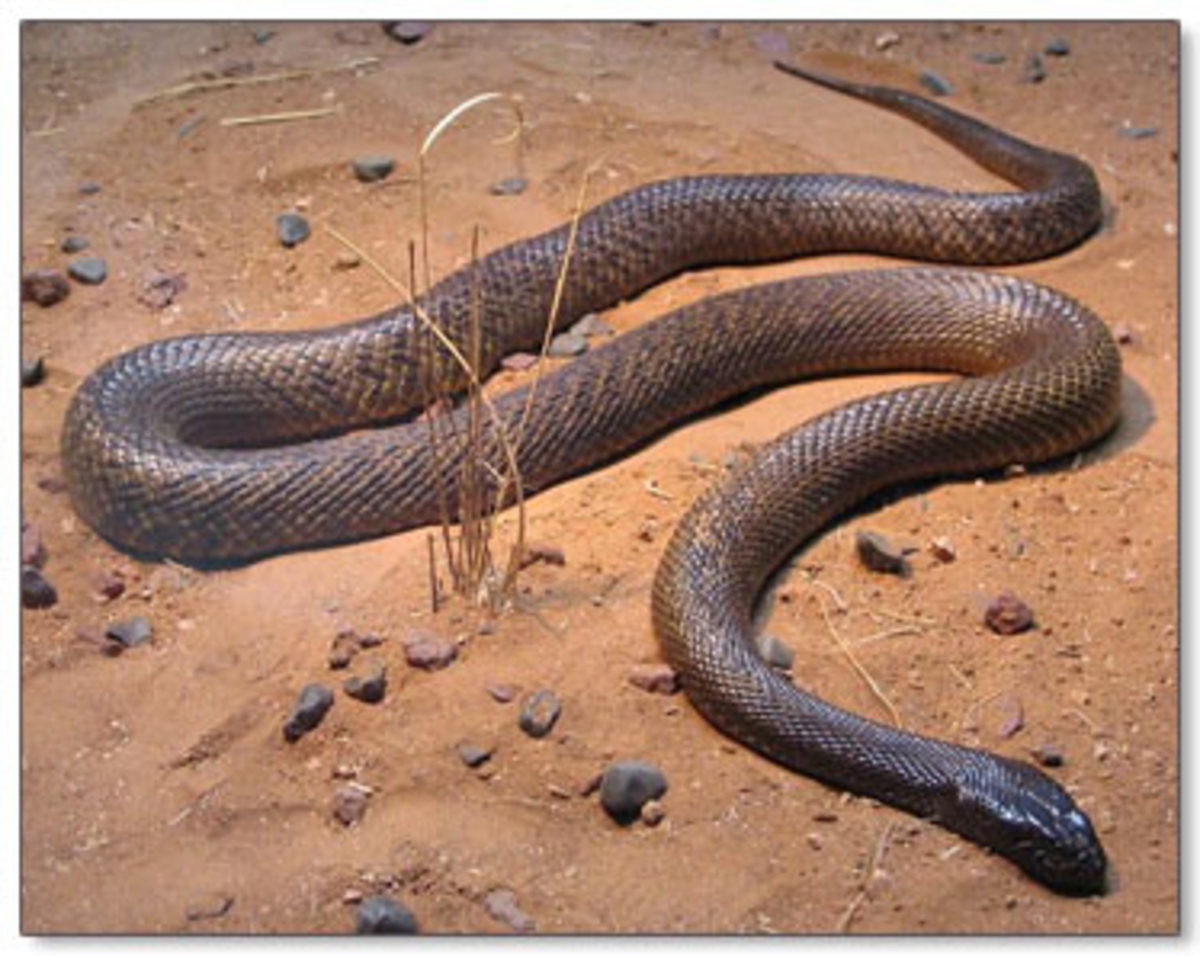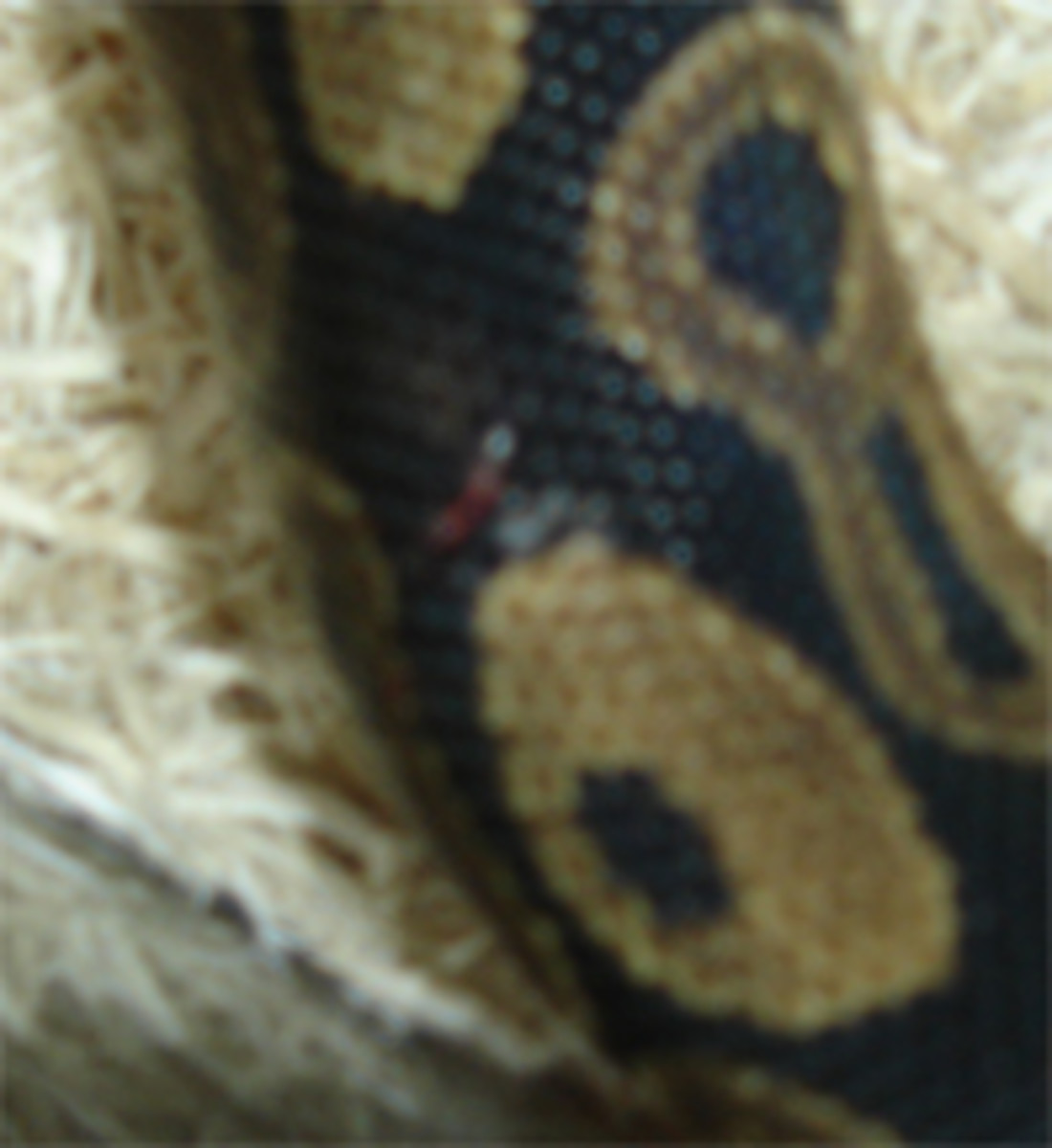The Reptile Nation: Why Support is Important

Throughout the past 60 years, the keeping of reptiles has changed from a bizarre hobby most people would shun to a widespread interest of the American public. The pet industry organized and represented reptile keeping early on, seeing an interest and helping to fill a niche. The interests and activities of this group today are largely independent from those of the pet industry, though they may intertwine here and there.
No matter the level of experience or involvement, from the casual owner of a single frog to the larger businesses that annually produce tens of thousands of snakes and lizards, we are all a part of a common interest community. We identify this community - which holds members from all walks of life - as the Reptile Nation.

A Community Stirring
The Reptile Nation is comprised of more than 5 million Americans. All are strongly interested in protecting their rights to possess and work with herps ("herps" being reptiles and amphibians). More than 49,000 letters from the Reptile Nation were delivered to the United States House subcommittee for a preliminary hearing of H.R 669, an anti-non-native-wildlife bill proposed in 2009 by Madeleine Z. Bordallo, delegate of Guam. That's over 9,000! But all jokes aside...
Millions of dollars from the Reptile nation stimulate the economy. The Reptile Nation is a part of all levels of the economy itself. Purchases of equipment, dry goods, beddings, and cages channel money into manufacturing, while millions of dollars go to support American agriculture with purchases of rodents, grain, bedding, vegetables and canned, bottled or bagged meals. Thousands of small businesses and their employees rely on the Reptile Nation, an impressive number especially considering the hard times this country is currently facing. However, the most important accomplishments of the Reptile Nation may actually be in the conservation department.
In light of worldwide habitat loss, steadily increasing degradation of natural resources, and a loss of diversity and density in the majority of species, captivity is becoming more and more of an attractive idea to conversationalists as a measure to secure animal population. Living examples include the many Asian turtle species in captivity and the multitude of frogs kept within the Amphibian Ark program. The Reptile Nation has successfully reproduced a significant percentage of reptile species. We have convincingly demonstrated that practically all reptiles can be maintained in captivity, and that this can be done by us, the private keepers.

The Reptile Nation has documented its work in the maintenance and captive breeding of an entire class of vertebrate animals; data on the maintenance and reproductive husbandry of hundreds of reptiles are available online and in print. Even more impressive, the information generated by this endeavor has been shared - the Reptile Nation itself promotes the dissemination of the data that has been generated.
The Reptile Nation created and now supports self-sustaining captive populations of several hundred species of reptiles. This feat has been accomplished through a decentralized, nongovernmental, economically driven model of conservation. American private enterprise has achieved this impressive modern goal, and not a penny of American taxpayer dollars has been spent in this endeavor.
What is being attempted around the world for amphibians, wild felines, and many other rare vertebrates has already been accomplished for reptiles. Reptiles are today more securely established in captivity than any other vertebrate group. This is truly of the greatest conservation accomplishments of the past 20 years.
Today the vast majority of reptiles held in captivity within the Reptile Nation are captive-bred animals. These animals have not been removed from the wild. Thus the Reptile Nation is a producer of captive-bred animals and a protector of reptile species.
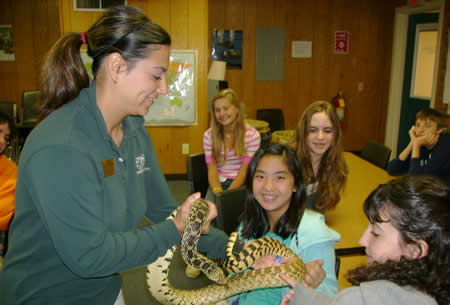
Reptiles are one of the most common animals used in schools across the United States. Not dogs, not cats, not rodents - it is snakes and lizards that are brought in to educate and entertain children. Reptiles are used to teach lessons about animals, the environment, ecology, natural history and conservation. They instill a natural wonder in the young.
However, the majority of school-based educational programs are done as a courtesy. These programs rely on the giving efforts of the dedicated volunteers who present lectures and demonstrations to schools, camps, rallies and other groups of people young and old. A movement that has been taking place for several decades, this could arguably be the largest volunteer educational program involving animals and wildlife in the United States.
In many ways, the Reptile Nation still overlaps with the pet industry, its progenitor, but it is evolving and changing independently with steady success. Powerful changes have occurred in every aspect of the economics, communications, accomplishments and philosophies of the Reptile Nation, but the changes have come gradually, and they have been largely unrecognized. But the time has arrived for this community to comprehend its existence, embrace its accomplishments, and plan for its future.
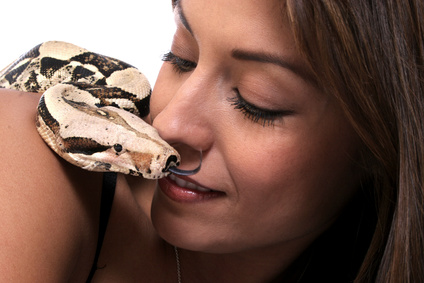
Why Help Is Needed
The Reptile Nation is a nationwide, interconnected web of people who share a strong interest in reptiles. Within the Reptile Nation there are many subsets of people with carrying interest in particular aspects of herpetoculture and herpetology. Demographically, the Reptile Nation includes people of every age, income, political and educational category, and it is spread throughout nearly every county in every state of the nation.
The Reptile Nation is now awakening to the crucial importance of organization at the national level. Reptile owners have inhereited a degree of independance and privacy from decades ago, long before reptilekeeping became a mainstream American activity. But the time has come to organize the Reptile Nation continues to evolve and prosper.
The United States Association of Reptile Keepers, better known as USARK, is the political face of the Reptile Nation. A nonprofit, politically active organization, it exists to protect and promote herp keepers' rights and activities.
There is a national movement that endangers the Reptile Nation and all the good it has done. Some highly organized animal rights and environmental groups hate the concept of captivity. Even though there are widey different underlying reasons why each group believes that animal captivity if wrong, they are united in their efforts to remove animals from captivity and from the American public. Their increasing attacks on the freedoms and rights of all animal owners, and the Reptile Nation in particular, can no longer be ignored.
Americans are losing their animals. It's not just reptiles, but they are often specifically targeted. Little by little, piece by piece, the rights to keep animals are being nibbled away. Today most Americans live in large cities away from nature and alienated from all animals other than dogs and cats. Average Americans simply don't realize that their right to maintain animals is being systematically challenged and erased.
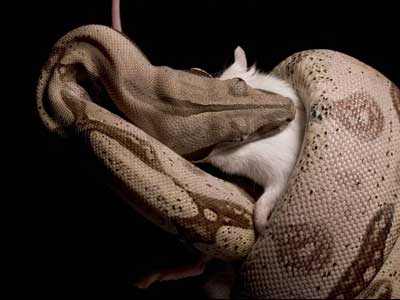
Regulations to remove animals from all Americans are often framed as being necessary for public safety, public health or environmental protection. This all sounds reasonable and desirable to a populace with decreasing exposure to, and less experience with, most animals.
As the general population loses contact with animals, it begins to fear animals. The public is constantly being told that animals can cause injury, diseases, even death. However, with the removal of animals in society comes a dramatic loss in the of support of zoos, parks, and conservation and environmental organizations. There results a general loss of curiosity about, and knowledge of, the natural world. People cannot be expected to love, respect or support that which they have never experiened.
At play are forces seeking to criminlize the captivity of all animals. Primarily because of a lack of political organization, reptiles have been among the easiest targets. The past decade clearly shows a general trend of slow and insidious increases of restrictive regulations at every level of government. City by city, county by county, state by state, anti-animalkeeping laws and ordinances have been methodically enacted across the United States. Agriculture guidelines turn into dangerous-animal ordinances that turn into exotic-animal ordinances that then become animal bans. USARK can help, and is actively fighting to change this trend.
Legal Encroachment
In a 4-year-long attempt to crush the possession of all reptiles in America, the federal government has pushed to pass bills that would essentially ban any non-native animals from possession (particularly H.R 669). But in more recent years, they have honed their attention tighter and tighter, targeting the Reptile Nation like wolves target their prey away from the herd.
-
These proposals are always defended with claims to protect the public and/or the environment, but often little science supports either claim.
-
These laws grant the government sweeping power to confiscate the property rights of American citizens without compensation.
-
These laws can negatively affect the quality of life of millions of American citizens. They restrict and even ban people's rights to own, study and enjoy animals in which they have strong interests. These laws also are detrimental to many American small businesses that generate income for families.
-
These laws are typical of the continuous efforts by local and national animals-rights organizations to force their views and philosophy on the American public through legislation.
-
USARK must receive the united support of the Reptile Nation in order to protect our rights to maintain animals into the future.
What They Are
USARK is an organization created by fellow reptile keepers for reptile keepers, promoting the proper owning of reptiles in the private community. They support responsibly kept enclosures, maintenance, escape prevention, and intelligent opinions toward reptile-related issues. Their goal is to gain cooperation with the public, the media, and the government in order to create policies that will address the pressing issues that threaten herpetoculture.
What They Do
USARK is committed to the defense against the government's various attempts that will, have, and continue to be mounted against the keeping of reptiles, and providing a united front for us during such dark times.
During the extensive media hubbub over the release of a dubious report written by the United States Geological Survey stating that the insignificant Burmese python population in the Everglades would explode and branch out into the majority of the entire United States, USARK was on alert. The report was proven faulty by multiple unbiased, not-partisan scientists and biologists, yet a proposed bill was still in order, pushed along by expensive agencies with hidden agendas. The bill offered up 9 different constrictor species (including all 7 species of python) to be considered under the Lacey Act (thus banning the purchasing, selling, trade, and ownership of all). But USARK was hot on the bill's heels, and worked to amend H.R 2811 to significantly lessen the number of snakes targeted. As originally written, the bill could have added all pythons to the Lacey Act.
That includes Ball pythons, the most commonly kept constrictor.
It is no surprise that there is a percentage of the general public with loudly damaging views of reptiles, and an even larger number that are on-the-fence about the subject. But it is of utmost importance that we connect with this particular group about the Reptile Nation itself. USARK wants to shed light on us in order for the reptile-shy demographic to become better educated as to who we are, what we do, and why that should be allowed.
USARK works to gain an up-to-date understanding in regards to topics that may jeopardize reptile keepers nationwide, and strives to teach facts in place of old wives' tales and B horror movies. Educate, educate, educate! Science has no room for fear.

In defense of our own rights, USARK is prepared to publish information that interprets the bogus and often deceitful reports issued forth by governmental agencies. USARK holds itself as a reputable source of information where one can turn to for legitimate insight of actual events based on scientific fact, and they invite anyone to do so.
What They Believe
Conservation has the huge potential to be the "poster child" of the Reptile Nation. USARK stands behind the prevention of native herp species decline, while at the same time commending and fighting for the rights of reptile keepers everywhere to continue their legal, solid practices. As mentioned, it has been proven that conservation efforts within the Reptile Nation has been remarkably effective.
The countless reptile and amphibian species currently maintained in stable captive numbers by reptile keepers are shining examples of privately owned conservation projects, free from governmental tampering. USARK knows this, and also recognizes that with the support of the these private breeders and keepers, there are few species that cannot be successfully maintained indefinitely in captivity. Andrew Wyatt, president of USARK, goes on to say:
"At this time, the Reptile Nation is the most successful and experienced entity in the world at managing and maintaining an entire order of vertebrate animals."
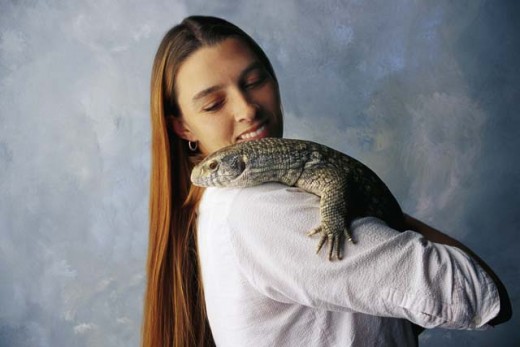
The Opposition
The Human Society of the United States (HSUS) is considered to be the biggest animal advocacy organization in the world, and their hidden motive is that they actively support the banishment of all exotic pets - including but not limited to parrots, hamsters, tropical fish, and snakes.
The president of the HSUS was quoted with the following statement in regards to the United States Fish and Wildlife Service's attempted ruling to list the aforementioned 9 species of snakes as "Injurious Species" under the Lacey Act:
"Our thanks to Interior Secretary Ken Salazar and the leaders of the U.S. Fish and Wildlife Service for moving forward to restrict the trade in giant constrictor snakes as pets. The proposed regulations will curb the cruelty and harmful ecological consequences associated with the trade in nonnative, large constrictor snakes. These animals in private hands also pose a public safety threat. The Humane Society of the United States urges swift implementation of the final rule."
PETA (People for the Ethical Treatment of Animals) is a startlingly large, non-profit animal rights corporation with over 300 employees and two million members and supporters. It is said to be the biggest animal rights group in the world, and, in the year ending July 2009 alone, received donations of over $32 million, more than 80% of which was spent on its campaigns. Campaigns that included the funding towards federal bans, particularly H.R 669, which proposed the ending of all exotic animal trade.
It is no secret that PETA opposes the captivity of animals - be they lizards, birds, or even dogs. And together, with the help of the ignorantly funded HSUS, they create a force powerful enough to sway the government itself.
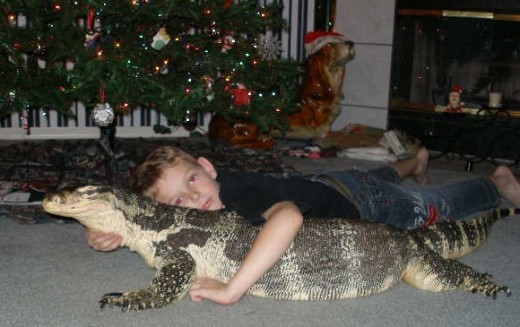
A Blow To The Reptile Nation
On January 17th, 2012, the first of the worst began. It was an unfortunate crush for many and an unparalleled defeat for thousands of snake owners across the states. Constitutional rights were ignored as the millions of dollars from HSUS, PETA, and combined organizations with ulterior motives finally paid off. A restriction on Burmese Pythons and 3 other species was passed at last, the same bill that has been threatening the Reptile Nation for years.
The United States how now enlisted a ban of all import, export, and trade of Burmese pythons, African rock pythons, and Yellow anacondas due to the unfounded, supposed danger they pose to local wildlife - despite this being a singularly Southern Florida problem.
U.S. Interior Secretary Ken Salazar announced the unhappy news when he visited the Everglades National Park in Florida, voicing that the ban would take effect in approximately 60 days. This move will make it illegal to import or transport the snakes across all state lines, punishable by severe fines and confiscation and death of all animals involved.
And it's not over yet. 5 other snakes, mentioned above along with the previous attempts at this ban, remain under consideration for listing as "Injurious Species". They include the Reticulated python and Boa constrictor. This is only the beginning. The government will move on to the others soon, and beyond that until they are eventually grasping for your Bearded dragons, Ball pythons, even hamsters and zebra danios.
Despite all the good we are capable of, reptile keepers are widely regarded as being disorganized or just downright lazy when it comes to matters concerning their own trade. It is an unfortunate truth, perhaps due to the large number of younger folk that make up the majority of this Reptile Nation. Many reptile keepers see proposed bills and say, "Oh, it'll never pass." or "Oh, it doesn't concern me because I only have geckos and don't keep snakes." But I am ever aware of a famous quote by Martin Niemöller:
"First they came for the Socialists, and I did not speak out, because I was not a Socialist. Then they came for the Trade Unionists, and I did not speak out, because I was not a Trade Unionist. Then they came for the Jews, and I did not speak out, because I was not a Jew. Then they came for me, and there was no one left to speak for me."
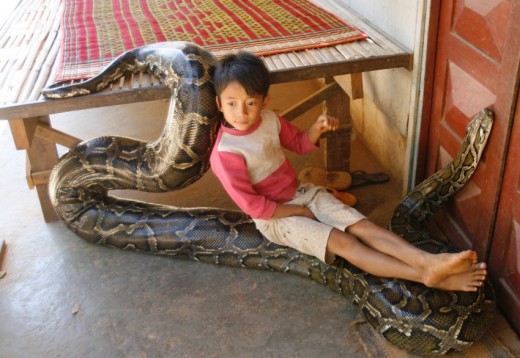
The Future
The future of our world is understandably ours to shape, but we must stand as a group united. The Reptile Nation has the political power to counteract whatever blow the Congress or media produce, but we must learn how to utilize that power through USARK. Anyone who shares an interest in reptiles should join USARK and support it.
The day has come and gone when political apathy remained an option. Only united can the Reptile Nation chart a secure course to a future where the efforts of this devoted community are appreciated and encouraged, and its liberties and rights are protected.
There is strength in numbers, my friends.

What Can I Do?
By becoming wary of political activity and educating yourself in the matters of reptile fact, you are already a step ahead of many other individuals. But by joining together under USARK, funding programs with no ulterior motives other than to promote our freedoms, and actively working to make ourselves heard by senators, governors, and presidents, we can all help to make a difference and continue to keep our God-given rights as Americans. Sign petitions, call numbers, make some noise.
Some things are worth fighting for. I believe our pets are some of those things.
-
Help Overturn the Python Ban
-
Join and Support USARK
-
Educate Yourself On The Truth
-
What The Entire Ban is Based On
-
Listen, Learn, and Share
- Learn More About HSUS
- Hidden Agendas of PETA
- The Consequences of Sensationalism in Television
- Get Connected with Kingsnake, ReptileChannel, and USARK on Facebook



